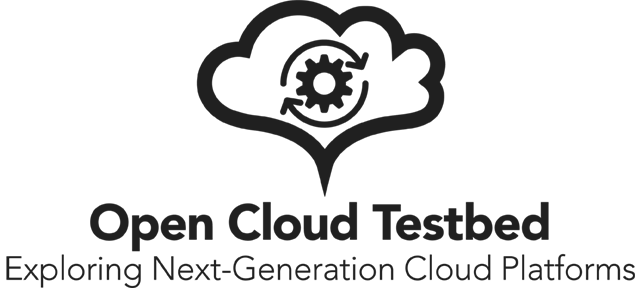Open Cloud Testbed

Today’s cloud testbeds have become a critical tool for systems researchers; providing researchers access to large scale raw hardware, support for reproducible experiments, and automation for deploying complex environments. For example, in just the last three years nearly 3,400 researchers have used the CloudLab testbed to conduct over 70,000 experiment and have published results in many top-level research venues, including SIGCOMM, OSDI, SOSP, NSDI, and FAST. Unfortunately, today’s testbeds are isolated in that they are deployed using dedicated infrastructure and are made available to a specific community of researchers for which funding (e.g. from the NSF) was obtained. This isolation results in a number of problems. First, with fixed resources and a community with similar deadlines (e.g. important academic conferences) it is difficult to efficiently handle peak demand. Second, limiting the use of the testbed to a specific community limits the community enhancing and extending the testbed; testbed capabilities could have enormous value for a broad industry and open source community. Third, the testbed is isolated from production environments; meaning that the testbed has no direct way to provide researchers using it access to production information, real datasets and real users, which in turn limits the ability of these researchers to pursue certain research efforts. Finally, the combination of these challenges introduces barriers to another research goal, that of transitioning research developed in the testbed to practice.
The Open Cloud Testbed (OCT) project addresses the challenges inherent in an isolated testbed by integrating testbed capabilities into the Mass Open Cloud (MOC), an existing cloud for academic users. In particular, the project will 1) add testbed dedicated resources, including a cluster of FPGA enhanced nodes, in the MGHPCC data center used by the MOC, 2) harden the MOC’s Elastic Secure Infrastructure (ESI) mechanism, which allows physical servers to be elastically and securely moved between different services, 3) integrate ESI with CloudLab’s provisioning mechanisms, and 4) provide system researchers access to cloud telemetry and datasets and provide them with the ability to expose experimental services to users of the MOC.
Additional Information
Project information can be found on the Open Cloud Testbed page on the Mass Open Cloud site. An independent project site will be launched soon.
All check out the project on the Red Hat Research site.